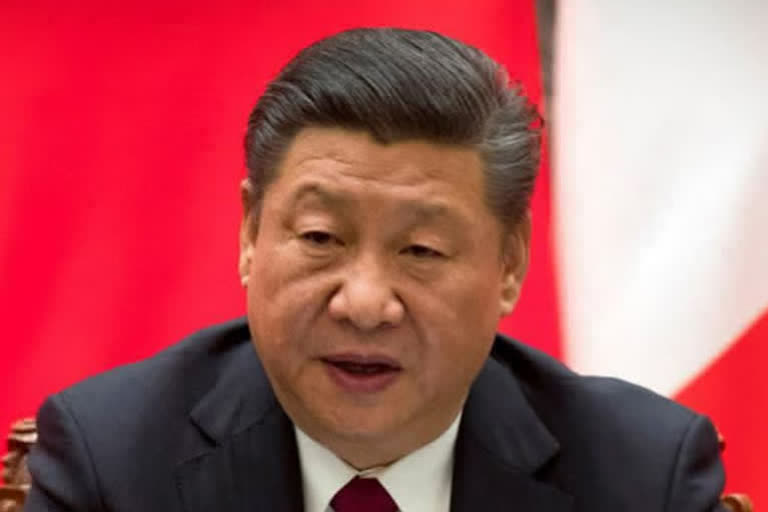Tokyo:The descriptions that China's state media rolled out ahead of leader Xi Jinping's speech Tuesday at the annual gathering of world leaders at the United Nations were hardly unexpected.
The Xinhua news agency lauded him as a champion of the U.N. ethos, and commentaries laid out his expectations and plans as he prepared for virtual meetings with his colleagues at the U.N. General Assembly.
All of the propaganda was peppered with assertions of China's long history as a paragon of world cooperation, and of Xi as a leading voice of reason on the international stage.
But scattered clues suggest some unease as China looks to manage its staggering and staggeringly complex military, economic and political rise while confronting the aggressive containment strategies of the world's current superpower, the United States, and its friends and allies.
Xi Jinping has his work cut out for him at the General Assembly, said Mike Mazza, a China analyst at the American Enterprise Institute in Washington. He pointed to tensions with Europe over trade and investment, climate and human rights, in addition to the Trump administration's more consistently confrontational approach to China.
Xi has failed to leverage ill feelings between many European leaders and U.S. President Donald Trump, while a potential detente with Japan has stalled. Relations with Australia have nosedived over allegations of spying and political manipulation and calls for an investigation into the Chinese origins of the coronavirus outbreak, Mazza said.
Read: Pakistan starts clinical trial of Covid-19 vaccine
Despite distancing itself from Washington in favour of Beijing in recent years, the Philippines recently backed away from a threat to cancel a key military pact with the United States, another setback to Beijing's push to dominate the region.
These troubles are, by and large, problems of its own making, Mazza said of China.
As aggressive as Beijing can seem to its neighbours when using its fast-expanding military and powerful economy to carve out what it sees as its natural sphere of influence in Asia, this is a fragile moment in what's often seen as China's inevitable rise as a superpower.
Beijing has faced criticism over the continuing fallout from the coronavirus pandemic, which originated in China late last year. Some say Beijing initially attempted to cover up the outbreak before seeking to take advantage of its response for public relations ends.
There's outrage over China's severe restriction of civil rights in Hong Kong following its imposition on the semi-autonomous city of sweeping national security law, and over widespread accusations of mass detentions and cultural genocide against Muslims in the Xinjiang region. And there's wariness also over China's rising pressure and military threats against Taiwan, the self-governing island democracy that Beijing claims as its own territory.
